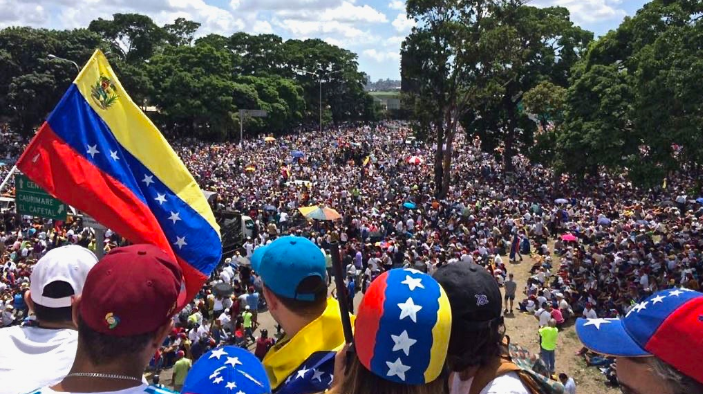West Recognizes the Urgency of the Venezuelan Crisis
Mar 4, 2019
One of the most talked about crises in the world is the ongoing situation in Venezuela. From the hyperinflation the country faces to the lack of food and medicine, and the question of who the real president of the supposedly democratic state is, the situation is progressively worsening. Current elected president Nicolás Maduro is in his second six-year term after taking over for his political predecessor Hugo Chávez. Things have only gotten worse as time has gone on. Both Chávez and Maduro have turned the once affluent and wealthy Venezuela into the violence-ridden and destroyed state it is now.
Because of his corrupt victory in the Venezuelan presidential election, Maduro’s opposition, the National Assembly, has cited articles 233 and 333 of the Venezuelan Constitution saying the spot is vacant in the case of a corrupt election and would be taken over by the head of the National Assembly. This is where 35-year-old Juan Guaidó comes into the conversation. On the 23rd of January, he announced that he would be the new acting president of the country, seeing as Maduro is unfit to do so. As of now, The United States, major European powers and other regional powers recognize Guaidó as the president of Venezuela. Russia and China are the only global powers that recognize Maduro as the president.
Niles West students are very aware of the problems that come with different nations recognizing different leaders.
“This difference in recognition only creates a deeper divide in international relations for countries, and we have to handle this carefully in order to avoid unwanted consequences,” junior Adrian Acosta said.
Guaidó’s power is limited, but he has gone on a trip to regional powers in order to gain support in his fight for power and is now supposed to be returning to Venezuela on Monday to try and gain more power. The problem becomes the fact that he is at risk of arrest if he returns to the country, seeing as he violated a travel ban issued by the Venezuelan Supreme Court. With his heightened global profile, an arrest is a very feasible possibility.
Sophomore Max Natanson sides with the U.S. in recognizing Guaidó as a more fit leader.
“The courage of Guaidó is unwavering and he seems to be a solid representative for the opposition. His efforts to try and battle the Maduro rule has been felt, and it gives him a good appearance as a courageous leader,” Natanson said.
As time goes on, this situation only gets worse. With inflation constantly rising and food becoming more and more scarce, families are left with no other choice than to seek refuge in other countries like Colombia. Three million people have already fled the country, and it seems like that number will only be increasing. West students recognize the urgency of the situation and the need for a resolution.
“I think we need to get involved, but we have to do so with caution. The people of Venezuela deserve foreign support and basic human rights. The problem with our intervention; however, is the way that ordeal is tied up in international politics,” sophomore Cody Slutzky said.
The problem gets stickier with Venezuela openly refusing foreign aid and blocking bridges that can bring supplies into the country from Colombia. The rest of the world will just have to wait to see what happens, as there is no predicting what can happen.




